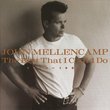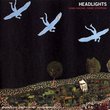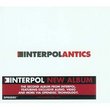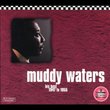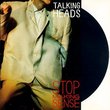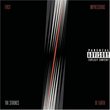| All Artists: Twine Title: Twine Members Wishing: 0 Total Copies: 0 Label: Ghostly Int'l Original Release Date: 1/1/2000 Re-Release Date: 10/28/2003 Album Type: Extra tracks Genres: Dance & Electronic, Special Interest, Pop Styles: Ambient, Electronica, Experimental Music, Dance Pop Number of Discs: 1 SwapaCD Credits: 1 UPC: 804297901824 |
Search - Twine :: Twine
 | Twine Twine Genres: Dance & Electronic, Special Interest, Pop
|
Larger Image |
CD DetailsSimilarly Requested CDs
|
CD ReviewsPrefix.com Review of Twine 03/30/2004 (4 out of 5 stars) "Truly a group for the tech age, Twine is much like the Books in that its collaborators -- Greg Malcolm and Chad Mossholder -- live more than a thousand miles apart and trade their material online. This, Twine's self-titled sophomore album, opens with two minutes of detuned and handpicked electric guitar backed by random dialogue and percussive bumps. Their songs come as collages, created from what seem like absolutely un-incredible moments. Slightly off-key strings, missed notes and abstract vocal bursts introduce a distinctly acoustic flavor into their programmed world. Every noise undergoes electronic treatments but remains strangely personable, its strums and burps revealing their imperfections more appealingly than those of the electronic majority. At times, the wavering guitar notes require lyric-less melodies to balance their compositions, but Twine's lo-fi aesthetic prevents any new age embroidery from clouding the record. The twelve-minute long "Kalea Morning" will divide the enthusiastic from the uninterested. Some will think that its shifty rhythmic afterthoughts and single hanging notes comprise a stunning ambient backdrop. Others will find themselves barely able to tolerate the continued drudgery. And both arguments have merit. Those expecting the beats to take off and explode will be sorely disappointed, but Twine is decidedly not a monotonous bore. The most exciting moments of "Piano" are delicate: single reverse keyboard tones forming dramatic progressions amid ten thousand square feet of reverb. "Girl Song" is a rhythmic pattern built on the continual retuning of a guitar, set apart by the timed female vocal samples, which sound much closer to South Asian chant than any recognizable Western style (or language) and hum throughout the track with beautiful restraint. Another standout is "Plectrum," where a repeated guitar chord sits punctuated by some of the only recognizable phrases on the album: "Good morning, goodnight" and a short rumination concerning "the guitar I'm playin' ... and the thoughts that I'm thinkin' ... and the words that I'm writin' ... " Twine seems to find several perfect moments when the single chord begins to grow old, and they respond by jumping key for one heightened phrase, only to immediately resume the first static pattern. That the members of Twine very obviously do not just push the buttons and sit back helps them escape the chronic stagnation so unfortunately prevalent in ambient music. Their style nods toward traditional sources like Eno, Harold Budd and Aphex Twin while contorting their influence into an original variation. Realistically, this record will at no time become a staple for any sort of gathering without sessions of intense contemplation, but it rewards the fickle mind with surprising revelations." Stylusmag.com Review of Twine : Twine 03/30/2004 (5 out of 5 stars) "Review of Twine : Twine www.Stylusmagazine.comOn Twine's early releases, the duo seemed to be striving to bring subtle horror-film soundtrack darkness to the precisely sculpted, post-Autechre terrain of IDM. Their 1999 debut, Reference, featured manic, abstract beats and marrow-chilling atmospheres a la Witchman (a British producer who flashed brightly from `95-'98 and then vanished) and the evocative use of disembodied voices popularized by Scanner. From this disc as well as the 2001 LP Circulation on Sweden's Komplott imprint and 2002's Recorder, you sense that Twine's Chad Mossholder and Greg Malcolm are serious sound scientists who know their musique concrete and electro-acoustic composers, but also possess the soft-centered emotional capacities of the most heartfelt singer-songwriters. It's a rewarding combination rarely found in laptop musicians.Recorder offered a yet more refined, subtle distillation of Twine's trademark abstract sound. They fed and manipulated guitars and pianos through software, lending an organic poignancy to the oft-sterile laptop-music genre. "None Some Silver" even verged on prog-rock, with its guitar tones stretched and ruptured like a John McLaughlin solo heard through a bad cell-phone connection, while "Touched" toggled between psych-rock bliss outs and Farmers Manual-style fractured circuit-board emissions and distorted, scattershot percussion. Throughout Recorder, Twine fused post-rock and IDM DNA to produce a superior breed of sonic ions whose microscopic actions coalesced into macrocosmic masterpieces of unusual textures and shapes. Much like Oval's Markus Popp, they found the beauty in fragmentation, the gorgeousness in the glitch. It was, quite simply, clicks & cuts for people who actually leave their computers once in a while and interact with human beings.Twine's new self-titled debut for Ann Arbor, Michigan's Ghostly International is a triumphant culmination of the group's vision. The disc begins with "G_R_V," a red herring of a track whose tentative acoustic-guitar picking, static and a mundane phone conversation don't prepare you for the extraordinary music to follow. But track 2, "Plectrum," reveals Twine's unique modus operandi in full flower. Building tension with a tightly coiled guitar riff and a seemingly sedated asylum patient reciting a hypnotic mantra ("Get on, get on, was she?"), Twine deftly weave in subliminal operatic female vocals, haywire electronics, and a sample of a Southern gent discussing guitar and banjo playing. The contrasting voices and instruments create a pleasing cognitive dissonance. On "Piano," chords from that instrument are tweaked into a luminous digital glow, while a forlorn dirge, like Main scoring a David Lynch western, fills in the background. The track exemplifies Twine's penchant for crafting beautiful tuneage that struggles through a software-erected forcefield. Twine's most interesting tracks feature the vocals of Shelly Gracon and Alison Scola (I can't distinguish who's singing on what, but Twine effectively deploy both in their spacious music). Album highlight "Girl Song" sets gossamer vowels floating over gently stuttering and shuddering pulses and plangent guitar twangs, forging some of the most ethereal blues ever. Deeply haunting and mysteriously beautiful, this could be a cyberspace collaboration between Mazzy Star and Ry Cooder. That it ends with spluttering, squealing tones of a Buchla synthesizer on the fritz reveals Twine's perverse side. Similarly, gorgeous, lamenting vowel emissions that sound like Dead Can Dance's Lisa Gerrard in a cave kick off the 12-minute "Kalea Morning." Nervous-tic beats and panned cymbal hits with metallic accents point toward Twine's debt to Autechre, but these traits are tempered by an enveloping Steve Roach-like ambient drone that aligns your chakras free of charge. The striking contrast between hectic rhythmic twitches and darkly tranquil tone floats again displays Twine's mastery of blending incongruous elements. Another brilliant use of the female voice occurs on "Asa Nisi Masa"; here, an Asian woman repeats the title words over rainfall and a lulling, Harold Budd-like organ fugue. Her sibilance and extended vowel sounds, combined with the slow-blooming dirge, form a hymn for an obscure South Pacific religion that even anthropologists haven't discovered.It's utterly mesmerizing.Pity the people who have to market Twine. This disc eludes easy classification, possesses too many dense layers, and covers too much arcane ground to be reduced to a pithy sound bite. While it contains chillout characteristics, the album also carries subtly disturbing undertones and rhythmic ruptures leaving listeners unable to completely zone out. Ultimately, Twine is best heard on headphones and with a clear head. You'll need that clarity to absorb the plenitude of rich details Twine magnanimously bestow. Dave Segal" Pitchfork Review 02/25/2004 (4 out of 5 stars) "Twine
Twine [Ghostly International; 2003] Rating: 8.2 You are listening to a record. There's the music, and then there's everything else. The time of day, your mood, the room you're in, the person you're sitting with. Sometimes the "everything else" can obscure what's happening with the music, other times it can clarify. In either case, the how and wherefore matter.I knew Twine's self-titled record was good the first time I put it on. It was clear that Greg Malcolm and Chad Mossholder had refined their approach, found what was most interesting about their moody style, and amplified it. But I didn't really hear it until a few weeks later, when hurricane Isabel tore through Richmond in late September and my apartment was without electricity for ten days. The night the storm hit, my wife and I plugged one of my computer speakers into her Walkman radio so we could listen to the news and follow what was happening. Even as a passive transmitter (no batteries for its amp) the speakers made the headphone signal audible as long as we maxxed out the volume.The next evening, after my wife went to bed and as I was reading by the light of a half-dozen candles, I plugged my CD Discman into the speaker and put on new Twine. With the Discman cranked to 10, the music was loud enough to be heard clearly, but having the internal headphone amp at that level imparted a faint halo of distortion. Which, at that moment, was perfect. It was completely dark except for the candles, even outside my window. Every house on the block, the streetlights, the traffic light on the corner-- all were without power. And Twine sounded like they were being beamed in via shortwave from some place halfway around the world.If only everyone could hear this album under those exact conditions (although you might want to skip the following morning's bone-chilling shower in a bathroom so dark you can't see your body to wash it), but it's not necessary. All you really need is for the sun to go down. Twine is a quintessential nighttime record, filled with broken transmissions and drones stretching into the vanishing horizon; it's the kind of night where an edge of paranoia is cut with flashes of comforting solitary bliss. You curl up to this thing.By customary definition, Twine is an IDM act, but the comparisons that stream through my head when I'm listening to this record come from elsewhere. The beats are nothing alike and Twine haven't a lick of hip-hop in them, but I can't help thinking of DJ Shadow's Endtroducing, the way this record uses disembodied voices and builds spacious atmosphere brick by brick. There's also a hint of Stars of the Lid in the drones that Twine favor this time out, and cinematic rock a la Godspeed seems somehow related, although Twine eschew extreme dynamics, and their only conventional instruments are guitar and piano, both of which are treated and looped.Ultimately, though, the thread holding Twine together is the voices. About half the tracks contain wordless vocals by Shelly Gracon and Alison Scola, and their contributions are key. On "Plectrum", which is built around slowing strummed guitar, the voice is clipped and percussive, where a word is snatched from meaning mid-syllable and set looping, giving a feel reminiscent of Laurie Anderson. Furthering the modern music references, "Plectrum" combines the sharp punctuation with some Tehillim-style sacred howls. In contrast to this art music approach are the ethereal Middle Eastern vocal drones with Taj Mahal reverb that snake through the 12-minute "Kalea Morning".There are the live vocals, and then there are the words, pinched and compressed by cheap radio transistors, which crackle in and fade out almost constantly. Adding "lost transmissions" to brooding electronic soundscapes is nothing new, obviously, but there's a subtlety to Twine's approach that makes it work. The voices appear and dissolve unexpectedly and the meaning is unclear; what they're actually saying doesn't seem terribly important-- the words are another layer in the dark cloud of sound that drifts slowly across the record. On "Pendant" an intercepted telephone conversation (an argument, maybe) is almost completely drowned out by the throb of electronic percussion. The track wouldn't be complete without it.Since forming in 1999, Twine have averaged a record a year, but their albums seem carefully laid out and constructed to work as individual pieces. They're not tossing tracks willy-nilly at every compilation that comes along and then gathering them together as a new CD. Twine has no killer must-hear track, and yet, each piece benefits by its relationship to what came before and what follows. It's an album in the old-fashioned sense of the word, and a damn good one. Try it at midnight first.-Mark Richardson, October 24th, 2003" |

 Track Listings (9) - Disc #1
Track Listings (9) - Disc #1